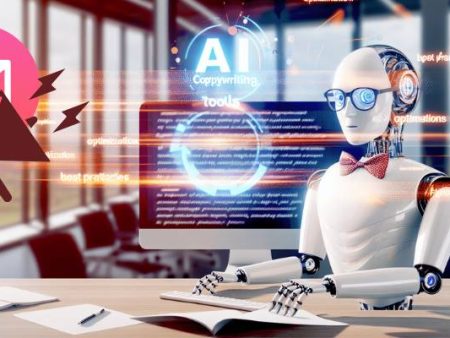If you’ve spent any time in digital marketing circles lately, you’ve probably heard someone ask: “Will AI replace SEO strategists?”
It’s the same half-joking, half-terrified question that comes up in Slack channels, marketing podcasts, even late-night brainstorming sessions when the caffeine is wearing off.
Here’s the thing: keyword research isn’t just about plugging phrases into a tool and hoping for the best anymore. It’s a strategy.
It’s understanding intent, seasonality, competition, and how a single phrase can open the door to an entire audience.
And now, artificial intelligence has stormed into the picture with AI tools for keyword discovery, clustering, and even predictive analysis.
So, does that mean the strategist—the human brain connecting all those dots—is on the way out? Let’s dive deep and see where this is really heading.
A Quick Look Back: Keyword Research Before AI Got Fancy
Keyword research used to be… well, clunky. Tools like Google Keyword Planner, SEMrush, and Ahrefs dominated the space.
SEO specialists spent hours combing through spreadsheets of data: search volume, cost-per-click, keyword difficulty.
The strategist’s job was to make sense of that chaos. Which keyword clusters actually reflected searcher intent?
Which ones would support long-form SEO content: designed to rank for more than just a single phrase? Which ones tied into broader brand goals?
It wasn’t glamorous work, but it required intuition. Numbers alone weren’t enough. You needed to understand people—why someone typed “best running shoes for flat feet” versus “cheap running sneakers,” and how to answer both queries without sounding like a robot.
Enter AI: Game-Changer or Just a Shiny Object?
Fast-forward to today. We now have AI tools for SEO that don’t just spit out keywords—they analyze SERPs, map intent, cluster related phrases, and even suggest potential topics that could drive traffic tomorrow.
Platforms like SurferSEO, Clearscope, and Frase use machine learning to study the top-ranking pages and reverse-engineer what works.
Even more advanced tools integrate with large language models (LLMs) to generate entire article outlines, suggest semantic keywords, and optimize on the fly.
And it’s hard not to be impressed. Tasks that used to take strategists a week can now be automated in minutes.
But here’s the catch: efficiency doesn’t always equal effectiveness.
AI Copywriting vs Strategy: Not the Same Thing
Here’s where nuance matters. There’s a temptation to conflate AI copywriting vs keyword strategy.
- AI copywriting is about generating words—articles, product descriptions, ad copy.
- Keyword strategy is about making decisions—choosing the right battles to fight, anticipating market shifts, and building content ecosystems that last.
Sure, AI can recommend “target these 50 long-tail keywords.” But it can’t always answer the strategic questions like:
- Which of these align with our brand voice?
- Which keywords signal intent that leads to conversions, not just clicks?
- How should we balance top-of-funnel awareness with bottom-of-funnel urgency?
That’s where human SEO strategists still matter.
How AI Copywriting Fits Into the Puzzle
There’s also the question of how AI copywriting intersects with keyword research. If AI can generate endless blog drafts filled with suggested keywords, does that reduce the strategist’s role? Or does it create more work—editing, fact-checking, humanizing?
In practice, I’ve seen both. Some brands drown in a flood of AI-generated content that ranks initially but doesn’t convert because it lacks emotional resonance.
Others thrive by pairing AI efficiency with human insight, using AI drafts as a foundation for strategic storytelling.
So maybe it’s less about replacement and more about evolution.
The Human Advantage: Empathy and Context
This is where I get personal. Data is beautiful, but it doesn’t tell the whole story. I remember working with a client in the health space who wanted to rank for “weight loss.”
Sure, the keyword volume was massive. But what about intent? People searching “weight loss” could mean a thousand different things—diet plans, medical procedures, personal stories.
A strategist’s role was to say: “Let’s narrow this down. Let’s understand what your audience actually needs.”
That kind of empathy—connecting keywords to lived experiences—isn’t something AI nails yet.
Machines can analyze trends, but they don’t feel the urgency of someone typing in “why can’t I lose weight after pregnancy?” or the vulnerability behind “hair loss treatment for women.”
And in a digital landscape where trust is currency, empathy is strategy.
Long-Form SEO Content: The Lingering Giant
Here’s another reason strategists aren’t going anywhere: long-form SEO content: is still the backbone of ranking power.
According to Backlinko, the average word count of top-ranking pages sits around 1,447 words. Other studies have shown that comprehensive guides not only rank higher but also earn more backlinks and social shares.
AI can churn out long-form pieces, but it often misses depth. It knows how to hit word counts, but not how to weave in case studies, original research, or that quirky anecdote that keeps readers scrolling.
That’s where human writers and strategists step in—to elevate content beyond checklists.
Where AI Really Shines in Keyword Research
That said, I don’t want to undersell what AI brings to the table. There are very real benefits:
- Speed: Generating thousands of keyword ideas in minutes.
- Clustering: Automatically grouping related terms into themes.
- SERP analysis: AI can dissect competitors’ content faster than any human.
- Trend prediction: Some models can forecast rising search queries before they peak.
For overworked SEO teams, this is huge. It’s like having a tireless assistant who never forgets to check seasonality or emerging subtopics.
Where AI Still Trips Up
But let’s be honest. AI isn’t perfect. Some of its flaws are subtle, others glaring:
- Hallucinations: AI sometimes “invents” keyword data or misrepresents search intent.
- Context gaps: It may suggest terms irrelevant to a specific industry.
- Over-optimization: AI can recommend unnatural keyword density.
- Brand disconnect: It struggles with aligning keyword strategy to unique brand missions.
These aren’t minor issues—they can make or break campaigns. A strategist knows when to ignore a high-volume keyword because it doesn’t align with brand ethics, or when to chase a niche keyword because it resonates with loyal customers.
Hybrid SEO: The Likely Future
So, what’s next? I’d argue the future isn’t AI or strategists—it’s both. Call it “hybrid SEO.”
A possible workflow:
- AI scans for keyword opportunities, clusters, and SERP data.
- Humans review the insights, prune irrelevant suggestions, and add brand context.
- AI assists in drafting content outlines or even first drafts.
- Strategists refine final content to ensure resonance, accuracy, and long-term alignment.
This workflow blends efficiency with empathy. It also positions strategists less as data miners and more as decision-makers—leaders who guide the creative direction.
What the Data Says
Some statistics help ground this conversation:
- In a 2024 Search Engine Journal survey, 74% of SEO professionals said they use AI for keyword research, but 68% admitted human oversight is still critical for strategy.
- According to HubSpot, 82% of marketers say AI helps generate ideas faster, but only 45% say it consistently aligns with brand messaging.
- BrightEdge predicts that by 2026, AI will touch 90% of online content workflows, but human strategists will remain vital for shaping direction.
Translation: AI is everywhere, but it isn’t everything.
The Emotional Core of SEO
I can’t emphasize this enough: SEO is about people, not just algorithms. People searching late at night, people with urgent questions, people curious about something new.
Keywords are just the trailheads—strategists are the ones who map the journeys.
And while AI may learn patterns, it doesn’t live human stories. It doesn’t understand the anxiety of Googling symptoms at 2 a.m. or the thrill of searching “cheap flights to Paris” while daydreaming. Humans do. And that understanding shapes not just rankings, but trust.
Final Thoughts: Will AI Replace SEO Strategists?
So, will AI replace strategists? My take: no—but it will redefine them.
Strategists won’t spend hours crunching keyword spreadsheets anymore. Instead, they’ll guide how AI copywriting fits into the bigger picture, ensure long-form SEO content: is more than just filler, and make judgment calls machines can’t.
AI is the assistant. Humans are the directors. And if you ask me, that’s not a loss—it’s a liberation.
Because the best strategists never got into SEO for the spreadsheets. They got into it for the challenge of connecting words to people, and people to brands. And that, I believe, will never go out of style.
Quick Comparison: AI vs Human SEO Strategists
| Factor | AI | Human Strategist |
| Speed | Instant keyword generation | Slower, manual |
| Scale | Millions of terms | Focused, curated |
| Context | Limited | Deep, nuanced |
| Brand alignment | Generic | Specific, authentic |
| Empathy | Simulated | Genuine |
| Creativity | Based on patterns | Based on lived experience |
Conclusion
AI isn’t the enemy of SEO strategists—it’s their partner. It can cut the busywork, speed up processes, and uncover hidden opportunities.
But it can’t replace the human ability to connect keywords to people, strategy to story, and data to emotion.
The future of keyword research won’t be about humans vs AI—it will be about how we learn to work together. And if we play it right, both sides might just make each other better.


